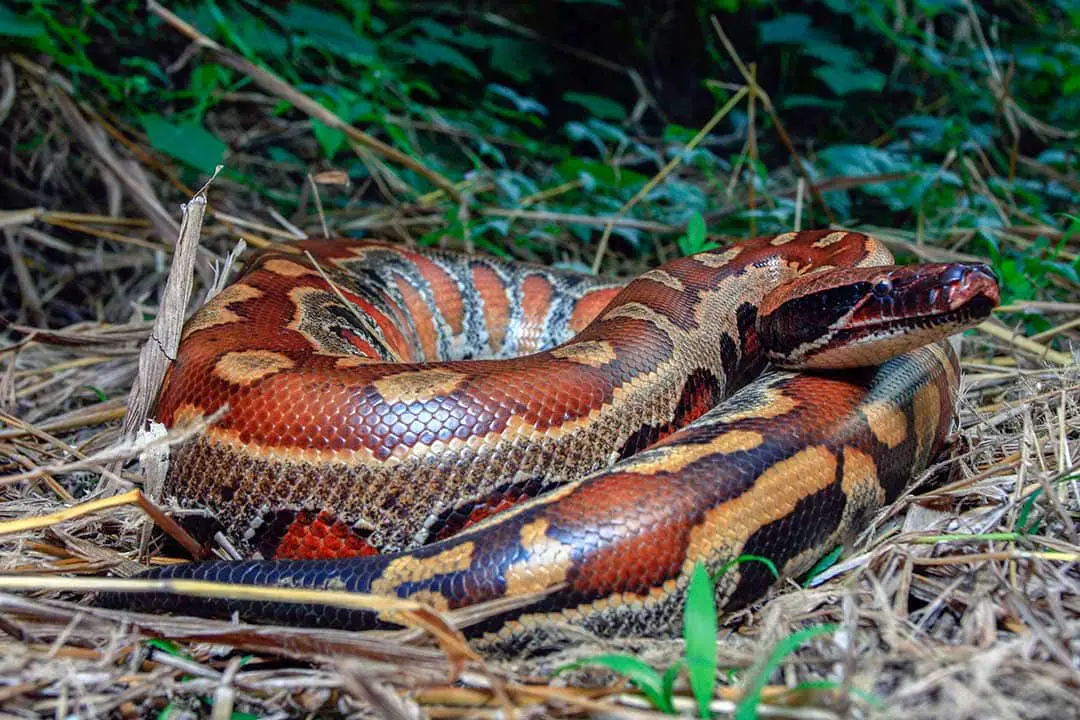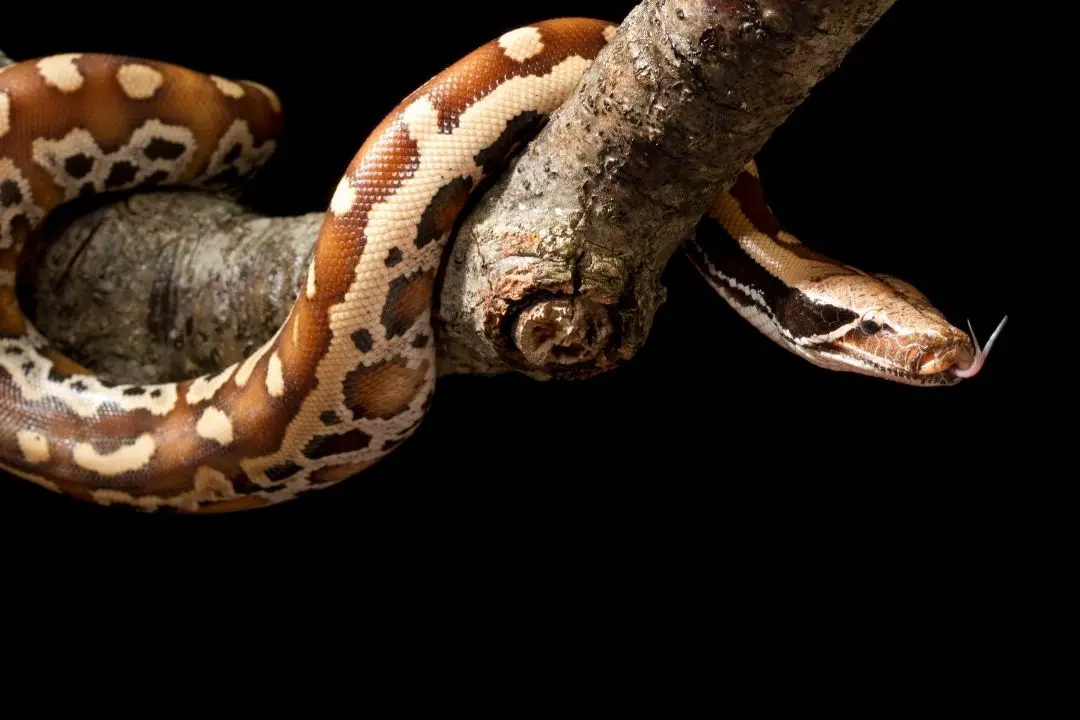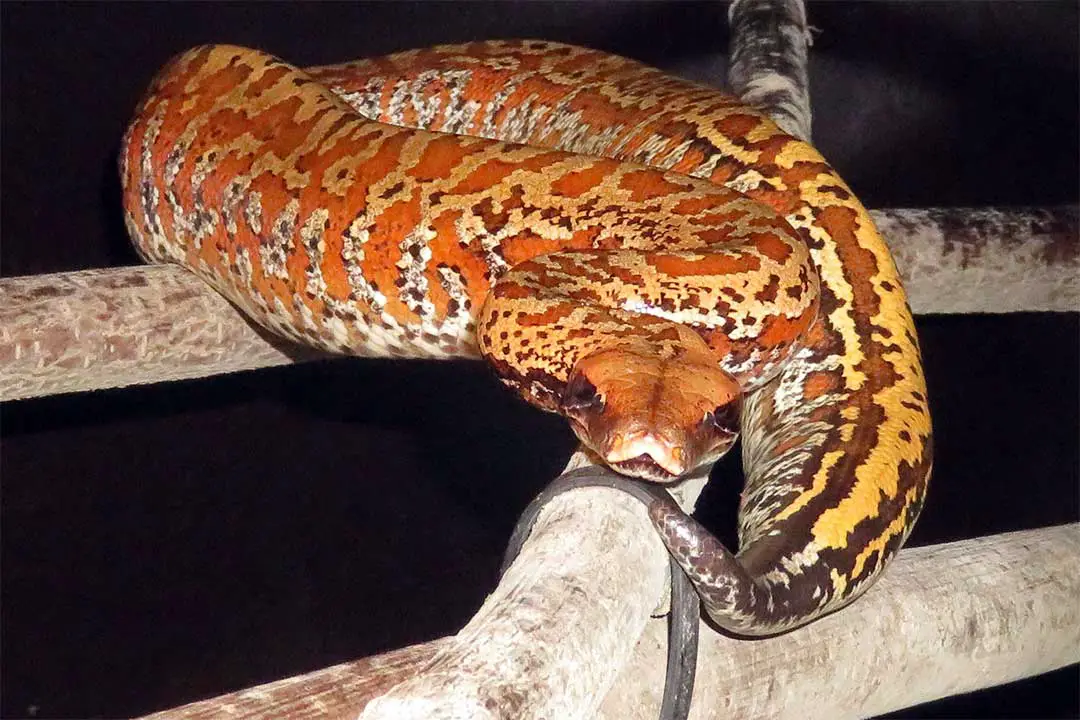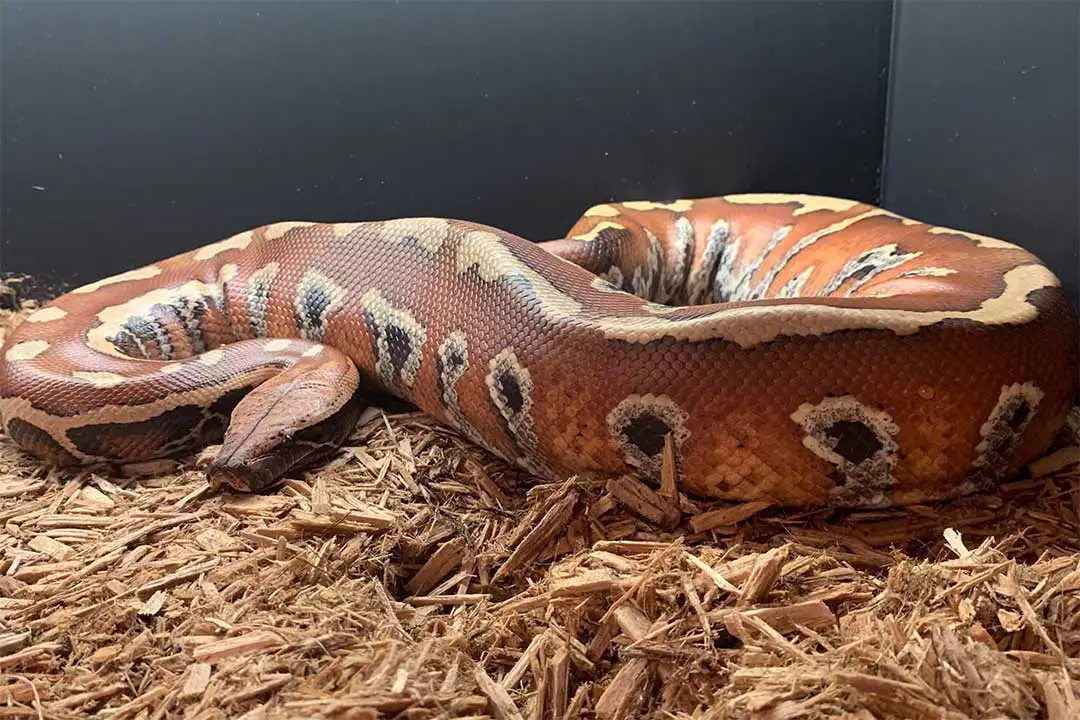The blood python (Python brongersmai) is infamous for being an aggressive animal. The real question is if this is true. Are blood pythons aggressive?
As a general rule, blood pythons are not aggressive. The stories came from wild-caught animals taken for the skin trade. They were typically anxious animals. Captive-bred and raised blood pythons are much more docile.
Aggressive Snakes
The vast majority of snakes kept in the pet trade are not aggressive animals. Most snakes referred to as aggressive just have no patience if they are bothered.
This can just be stepping too close. Most cases of snake bites are provoked in some way. Either a human nearly hurts a snake they didn’t see or the animal felt cornered.
Some pythons also incubate their eggs, so females with a clutch may bite to defend their offspring. Snakes as a whole do not have the mental acuity to understand if they have entered a human dwelling or that you didn’t see them.
Most snakes will flee if they have the chance.
Why Blood Pythons Have a Bad Reputation
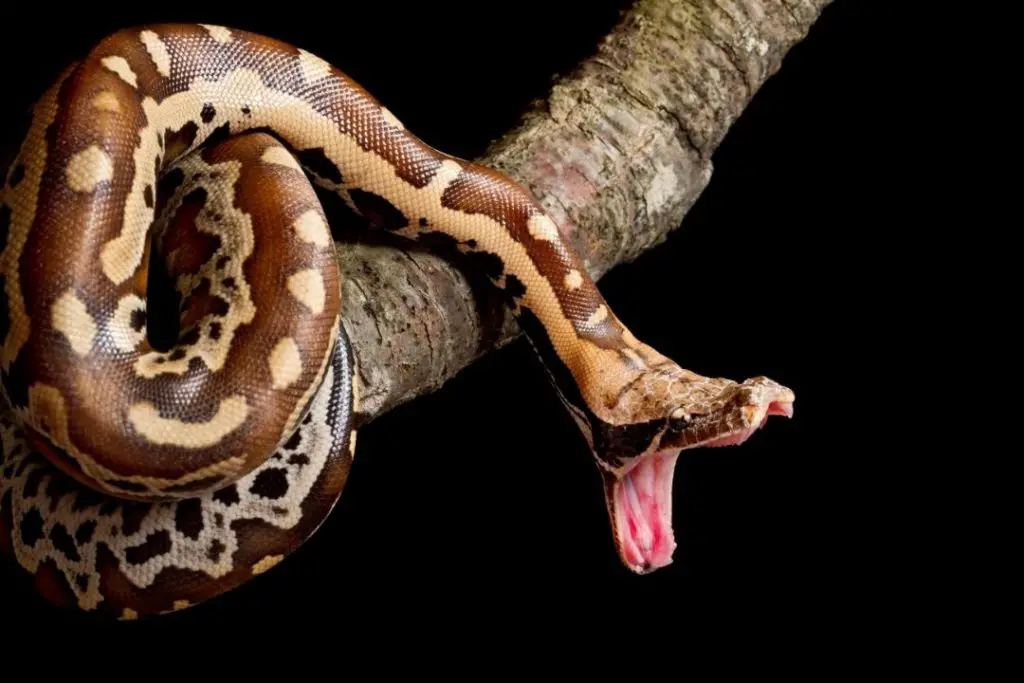
Everything you need to know about caring for Blood Pythons in captivity:
Read our Blood Python Care sheet (Complete Setup & Guide)
Blood pythons got their reputation from the first snakes to enter the pet trade. In contrast with the commonly kept ball python, the first animals were considered aggressive and unpredictable. This is simply because wild ball pythons are incredibly docile.
Ball pythons can be easily picked up and moved by a human since they ball up. Blood pythons are much more defensive. A wild-caught animal has been through a horrible experience.
They have been caught and put through a stressful and dangerous shipping process. The snake will frequently arrive sick, stressed, and in pain. This is not how you get a docile pet.
Blood pythons are do not tolerate poor conditions. If the temperature is too high, they frequently become irritated and more likely to lash out.
These snakes are typically defensive animals that lash out at predators. They are not aggressive, but wild-caught animals do not tolerate handling very well in general. They are easily stressed out as well.
Captive-hatched animals have the same problem. Captive-hatched blood pythons are animals that come from wild females. A gravid female snake is taken from the wild and made to lay and hatch her eggs in captivity.
The mother is then separated from her clutch and returned to the wild. These babies then deal with the stresses of being shipped.
The best way to have a docile pet blood python is to select a snake from a captive breeding project.
Captive-Bred Blood Pythons
Captive-bred blood pythons are almost unrecognizable compared to the so-called aggressive blood pythons of the past. Young blood pythons are typically anxious and defensive.
They will hiss, puff up, musk, and flail to try to escape. However, with regular gentle handling, they come to realize humans are not a threat.
By the time a properly handled blood python is an adult, they will be docile and even friendly for a snake. This is partly because of all the work breeders have put into the species.
A good blood python breeder only pairs healthy, docile animals. This results in babies that are more adapted to captivity with every generation.
Defensive Behavior
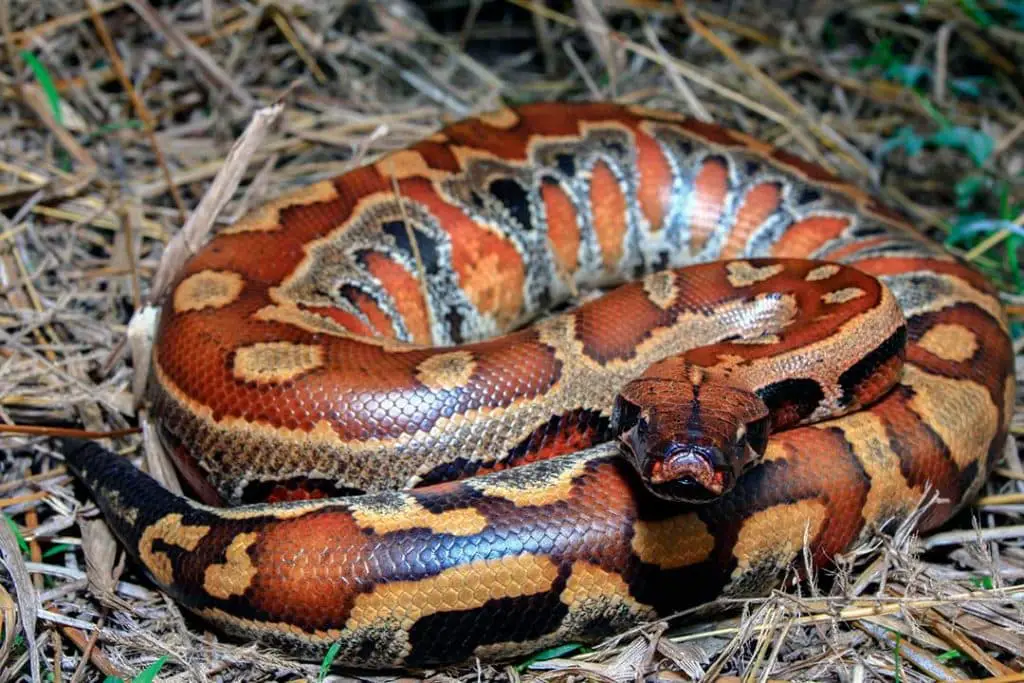
Most blood pythons give plenty of warning before a bite. The first attempt will be to flee. They will try to escape any attempts to pick them up or get away if you already have them in your hands.
They may also flail or thrash to try to break your grip. This is very common if you try to touch the top of the snake’s head or squeeze it.
The only time a snake gets squeezed or restrained in the wild is if a predator has it. You will also notice your snake hiss or puff up to look larger.
It may also musk. This is a very smelly and difficult to remove substance that comes from glands near the snake’s cloaca. All of these will come before a bite. If you see your snake curling up to strike, that is your final sign to back off before you are bitten.
Irritated or stressed snakes may give fewer warnings. If your snake is too hot it may be more defensive. Your snake may also be snappier if it is in pain.
Check your temperatures and look for signs of illness. If your snake is sick, take it to the vet. If you have been handling your snake regularly, you may be doing it too often.
If your snake isn’t sick, try leaving it alone for about 2 weeks. This can let a stressed out animal relax. Please note, this means only go in the enclosure to clean, give water, or feed your snake.
Try to avoid going near the enclosure while your snake is settling. That means don’t even pass near it if you can. If you fiddle in the enclosure or change it too often, that can stress out your snake.
Leave it alone and give your snake a week at least if you do have to make changes. If you need to switch out an old hide or change the temperature, give your snake time to adjust.
Conclusion
Blood pythons are not aggressive snakes. They are just anxious animals that react strongly to potential predators.
If your snake seems aggressive, try to discover why it is acting this way. Most likely, your husbandry is failing somewhere. If you have any thoughts or questions, please leave a comment below.
